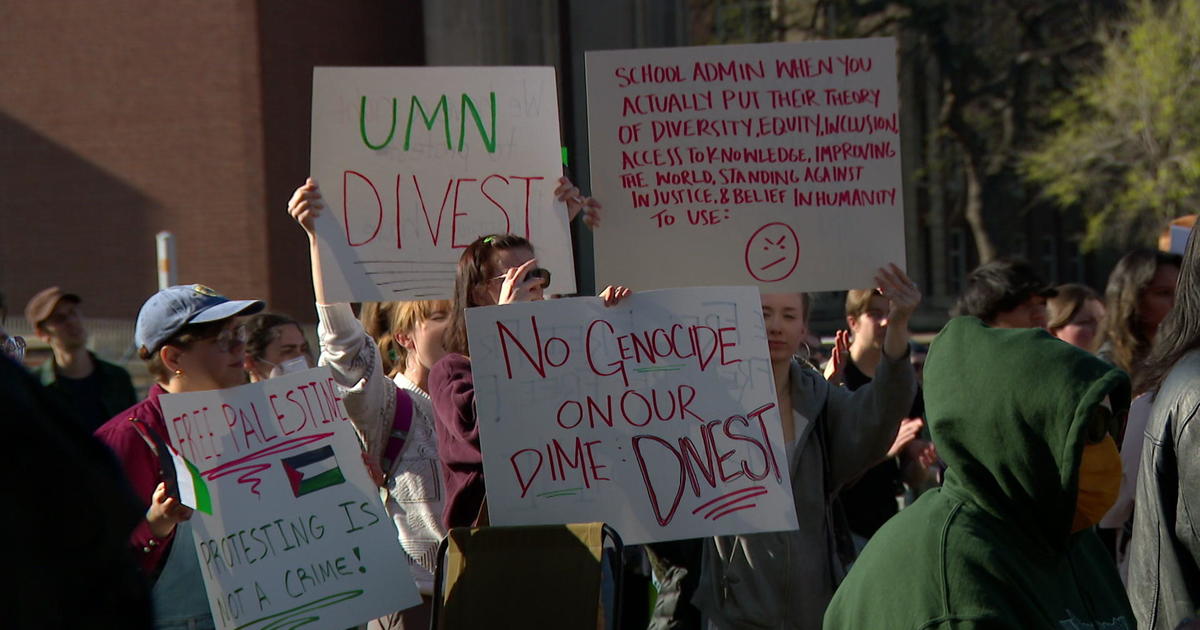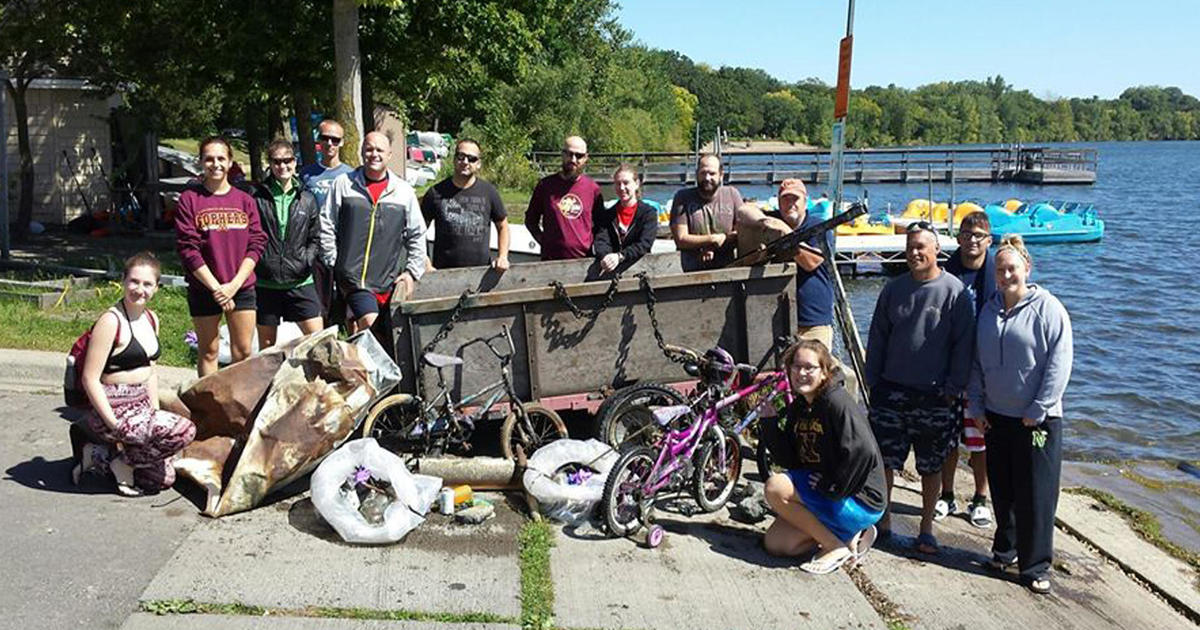Initiative Tackles Mental Health In Finishing Trades, Construction Field: 'We've Saved Lives'
LITTLE CANADA, Minn. (WCCO) – A mental health initiative is making a difference for students and workers in the finishing trades industry.
In 2017, the Finishing Trades Institute of the Upper Midwest (FTIUM) launched the Helping Hand initiative. The goal is to normalize conversation about mental health and create an environment where people feel comfortable asking for help.
"Anybody who works in this building knows how to respond to a crisis," FTIUM Director of Academic Education John Burcaw said. "The most important thing is that we have to live the words that we speak. We've made the decision to do that here. "
The Helping Hand initiative focuses on stigma, changing the words used to discuss mental health and ending discrimination against people with mental health and substance use disorders.
All staff members for the apprenticeship college and their district council have taken Mental Health First Aid and a course called "Changing the Culture of Construction." Both courses will be offered to students and union members beginning this fall.
Bob Swanson is an instructor for the "Changing the Culture of Construction" course.
"The industry is a tough industry," Swanson said. "We can't change some of the dynamics. It's still a stressful industry, a lot of schedules, a lot of work on the road, all those things. But we can change how we take care of people."
Swanson retired as a painting contractor. He serves as a suicide prevention advocate and a frequent speaker for the National Alliance on Mental Illness (NAMI).
Life forever changed for his family on March 13, 2009.
"Our oldest son Michael died by suicide," Swanson said of his 33-year-old son. "The people who knew him loved him. He was that magnet in the room. The real tragedy is he didn't feel that."
Swanson shared his struggles with loss.
"I bore a lot of guilt. I was raised as a male. You provide and protect for your family. That was drilled into me by my dad … and here I couldn't protect my son. I felt a lot of guilt, a lot of shame," Swanson said. "Thankfully, I was in a support group, a male support group for quite a few years to help get me through that. Then I just said, 'I can't be angry my whole life…what do we do about this?'"
Swanson has spoken about 140 times in the last half decade or so, telling his story to NAMI groups, work groups, construction groups and others across the country. He continues to learn about people, illnesses and substance use.
"I just don't want anyone else to go through what we've gone through," Swanson said. "I've become, I think more sensitive to, these are just illnesses. Nobody's fault. Nobody wants them and they're all treatable."
In 2020, the Centers for Disease Control and Prevention found men working in construction have one of the highest suicide rates in the country compared to other industries. It's about four times higher than the general population.
Risk factors include demanding schedules, uncertainty of seasonal work and workplace injuries sometimes treated with opioids.
"It's high demand work. It's a lot of pressure in the work that we do, deadlines, time constraints, dollars to be made," Burcaw said. "Then you have the hazards that we're exposed to…part of construction is working in remote areas, sometimes working alone. Females in the trades for example, may feel isolated as a result, not always sure if you fit in for example."
When it comes to suicide in Minnesota, the numbers are staggering.
In 2019, the Minnesota Department of Health reported 830 people died from intentional self harm -- the highest count ever recorded in the state to that point. The suicides disproportionately affected males, Native Americans and people ages 45 to 64. Males were three to five times more likely to take their own lives compared to females.
It's a trend FTIUM is working to change. Hundreds of students have studied at the apprenticeship college, the trade school for the International Union of Painters and Allied Trades District Council 82. The district council represents 3,200 members and works with approximately 90 employers.
"We know we've saved lives. We know we've saved lives as recently as the past month just because of courage, people having the courage to come forward, ask for help then getting them the help that they need," Burcaw said of the apprenticeship college.
Brandon Baier is one of 16 students completing the 18-week PSEO program at the Finishing Trades Institute of the Upper Midwest. After experiencing four-and-a-half years of bullying and suicide attempts, the teen switched schools and a counselor urged him to apply for the PSEO program.
"It feels really good that I can just be myself around people and they won't judge me for who I am or what I do," Baier said. "We're like a tight knit family here…we all like each other and love each other."
Baier explained how training received by his instructors through the Helping Hand initiative helped him find success in the program.
"He senses if I'm not OK or something is wrong and he'll text me right away," Baier said of one instructor. "'Are you doing OK?' It's just nice to have that support even when I'm not asking for it. They'll ask me."
The future commercial painter is considering several options for employment. He'll graduate from Paladin Career & Technical High School in June.
After hearing Baier's story, Swanson shared this message.
"To hear Brandon's story, it gave me goosebumps," Swanson said. "To feel proud of him and proud that our industry is changing because he felt safe."
For more information about the Finishing Trades Institute of the Upper Midwest, the Helping Hand initiative, or finishing trades careers, click here.



